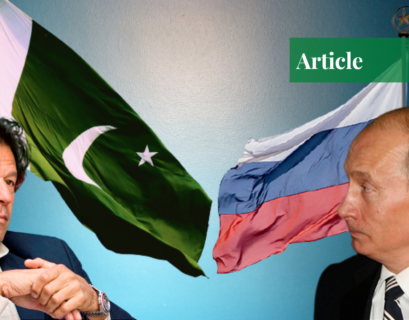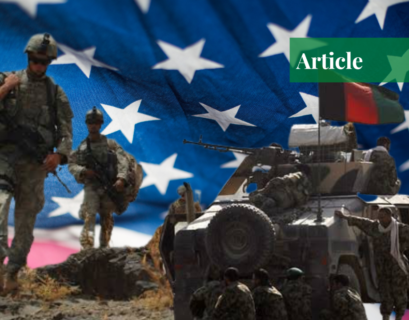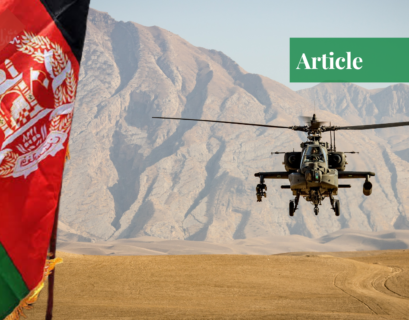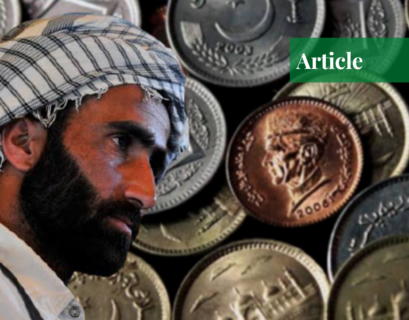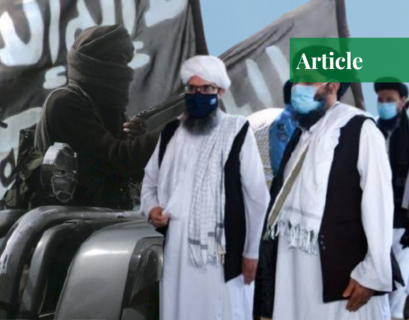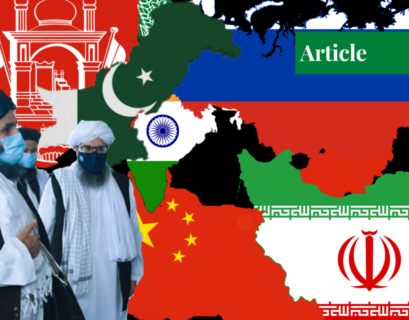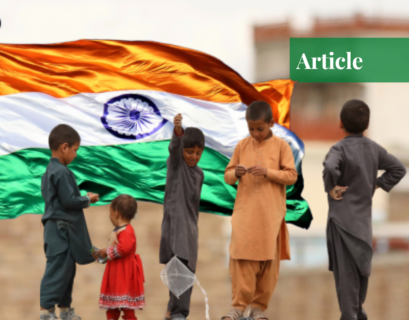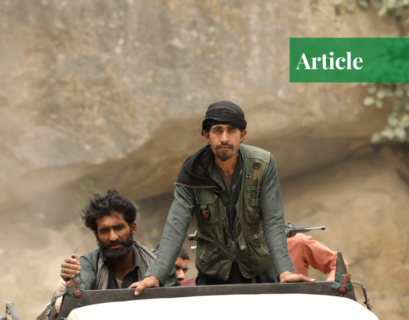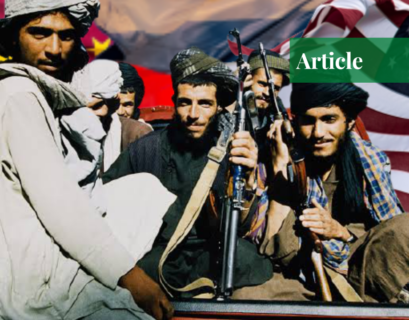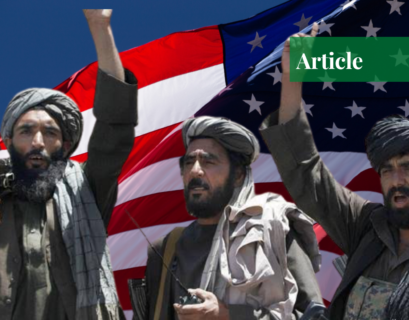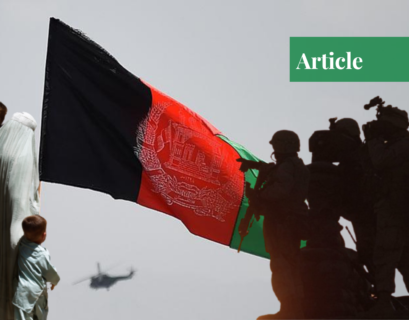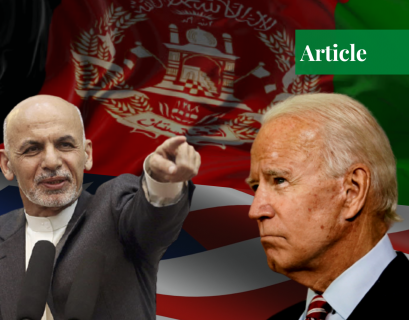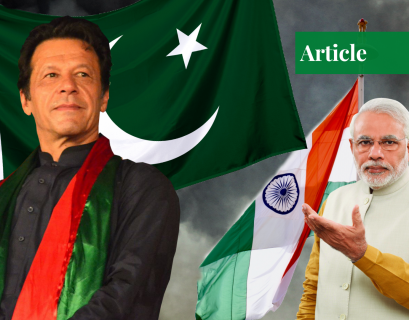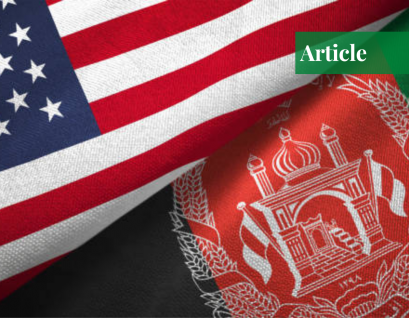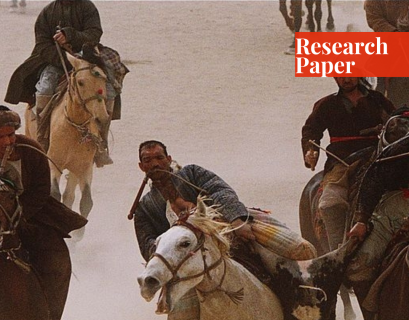Pakistan and Russia: Improving Bilateral Ties & Regional Stability
The author, Muhammad Hamza Tanvir, examines the possible contours of the future relationship between Russia and Pakistan – alongside the possible impact on India’s strategic designs.
The article also highlights the impact of the relationship between the two countries w.r.t. the predicament in Afghanistan, as well the role that both can play in enhancing bilateral relations.
From the American Invasion of Afghanistan to Taliban 2.0
The article portrays an educated yet comprehensive outlook of the Afghanistan conundrum. The author gives an insight into the US invasion of Afghanistan in 2001, the formation – and inefficiency – of the Afghan Army, the ultimate reclamation of Kabul by the Taliban, and their 2.0 version.
Civil War in Afghanistan: A Consequence of the American Exit?
The US withdrawal from Afghanistan left the state in a vulnerable and unstable condition. The author notes that with the Afghan Taliban now in power, the possibility of a civil war erupting in the state is relatively high. This war will force the neighboring states and the regional powers to, once again, get involved in Afghanistan. The author argues that this situation could have been avoided had the US fulfilled its responsibility under jus post bellum and upheld its moral, ethical, democratic, and international humanitarian principles. Instead, the US withdrawal has only reminded the world of the US exit in the Vietnam War.
The Economy of Pakistan & the Possible Impact of the Taliban Government
The Taliban takeover in Afghanistan has significant implications for the regional actors, particularly for Pakistan. The author notes that the fall of Kabul could negatively influence the economy of Pakistan. She asserts that with the border between the two states open, the possibility of Pakistan facing another refugee crisis, a drug trafficking problem, and terrorism, has also increased. These issues will ultimately cause the economic growth of Pakistan – which improved by 3.94% in 2021 – to decline and undermine the progress of the developmental projects in the state.
The Taliban Leadership vs ISKP in Afghanistan: A Cause of Concern?
With the international community scrutinizing every move made by the Taliban government, they have decided to portray a softer approach w.r.t. women/human rights.The author notes that while the Taliban are busy trying to seek international recognition, the group’s rival faction, the Islamic State of Khurasan Province (ISKP), can use this as an opportunity to recruit ground-level Taliban soldiers. The rise of ISKP—an offshoot of ISIS—not only presents a challenge to the authority of the Taliban regime but also to the regional stability of South Asia. It could eventually result in the amplification of terrorist activities in the region.
The Taliban Government in Afghanistan: Implications for Pakistan, China, India, Russia & Iran
The conclusion of the war in Afghanistan played out in the Taliban’s favour. With the Taliban now in power and forming the government, their alliances, which the author noted in his previous piece, will rearrange the geopolitical landscape of the region while also determining the fate of the global powers. Featured image credits: Ministry of Foreign Affairs, Pakistan
How India’s Investment in Afghanistan Has Failed Post-US Exit
In the last two decades, India has invested $3 billion in Afghanistan on infrastructure development. Through numerous projects, it has not only maintained its presence in the state but also backed the former Afghan government of Ashraf Ghani. The recent takeover of the Taliban in Afghanistan has placed India in a tight spot and sent years of Indian investment down the drain. India’s blatant anti-Taliban policy has made it difficult for it to maintain good relations with Afghanistan and sponsor terrorism in Pakistan through the Afghan soil. Moreover, the possible emergence of a new regional bloc—comprising of China, Russia, Pakistan, Afghanistan, and Iran—after the Taliban takeover has further threatened India’s influence in the region.
How the Taliban Came to Power: Tribal Islam vs. Settled Islam
On 15th August, 2021, the Taliban claimed victory over the US, the Afghan government, and the country’s national forces. The author explains the reasons behind this victory by drawing a parallel between the main actors and the concepts of Tribal Islam and Settled Islam.
The Taliban, according to the author, follow Tribal Islam, one that was initially practiced by the tribal peoples of North Africa. The Afghan government represents Settled Islam, which was established by the runaway caliph Abd-ur-Rehman in Andalusia (present-day Spain).
Those following Settled Islam lack ‘Asabiyyah’ – solidarity, responsibility, and social cohesion – which is a sustained feature in Tribal Islam.
How Regional Powers Are Strengthening Relations with the Taliban
With a looming civil war and he Taliban’s growing control in Afghanistan, the author examines the interactions between the Taliban and many powerful nation states.
The Taliban’s alliance will China and Russia, among others, would signal a threat to the US’s hegemony and India’s influence in the region.
The September 11 Attacks & the Afghan War: Role of US Neoconservatives
The author, Muhamad Onais Baryal, explores how the pro-freedom ‘neoconservatives’ have orchestrated and presented the US’s war on terror since the 9/11 attacks.
These neoconservatives were committed to advancing freedom in Afghanistan. They also used the reductionist narrative, along with ‘us vs them’ notion, to create a dichotomy between Afghanistan and the US.
The Implications of the US Withdrawal from Afghanistan
The US withdrawal from Afghanistan comes after 20 years of continuous fighting. Yet, instead of being a prospect for peace, this withdrawal is the sowing seeds for a new civil war in Afghanistan. The author, Mian Ali Haider, notes that since the US bypassed the Afghan national government to reach a peace deal with the Afghan Taliban, it discouraged the former and encouraged the latter’s morale. Under the disguise of a peaceful withdrawal, the US is ensuring that Afghanistan remains unstable to contain China, Iran, and Russia. The author explains that to further undermine China’s role in the region, and in Afghanistan, the US seems to have formed an alliance against China with not just the Taliban but also with the G7 nations as well–which manifested itself clearly during the 47th G7 Summit in Cornwall.
Farewell Afghanistan: Consequences of the US Troop Withdrawal
The author reflects on the possible events and scenarios that will spiral as the September deadline for the US’s departure nears. The article frames a careful analysis of Afghanistan’s future in view of the past courses taken by the Afghan government, the Taliban, the US, and regional states. One matter remains decided, however, and that is the US troop withdrawal.
The Elusive Afghan Peace Process
The US was never really in control of Afghanistan. Trillions of dollars spent, over a 100,000 casualties, & two decades later – the US is now stuck in a stalemate. Negotiating directly with the Taliban via Khalilzad seemed to be helping the US, but the recent change of date for the withdrawal of troops (from May 01 to Sep 11) can potentially hamper the peace process.
The US in the Afghan Peace Process: A Farewell Letter?
The long-awaited Afghan peace process seems to be evident from the Biden administration’s letter to President Ghani. The letter has communicated the Biden administration’s desire to end the war in Afghanistan. However, it will certainly prove to be a challenge for the parties to commit themselves to a peace deal that is already tenuous.
India and Pakistan Relations: The Possibility of Peace
India and Pakistan have had hostile relations since the time of their independence. However, the recent remarks by Pakistan’s Chief of Army Staff, General Qamar Javed Bajwa, during the second day of the Islamabad Security Dialogue, shows Pakistan’s willingness to pursue a détente with India. In the analysis of the statement made by the army chief, the author questions whether peace between the rival states is actually a possibility, and if Pakistan is going through a shift in its institutional thinking.
The US Withdrawal from Afghanistan: An Imperative Task
After two decades of war in Afghanistan, the time has finally come for the US to withdraw its forces. While the Doha Agreement paved the way for the US to extricate itself, its implementation will be based on the US interests defined by the Biden administration. Regardless of that, it is necessary for the US to withdraw its forces so that the war-torn state can learn to rely on itself.
Warlords in Afghanistan & Its State-building Process
The warlords in Afghanistan have solidified their position as an integral section of Afghanistan’s community. Their status and power has become indispensable to the state-building process in Afghanistan.
